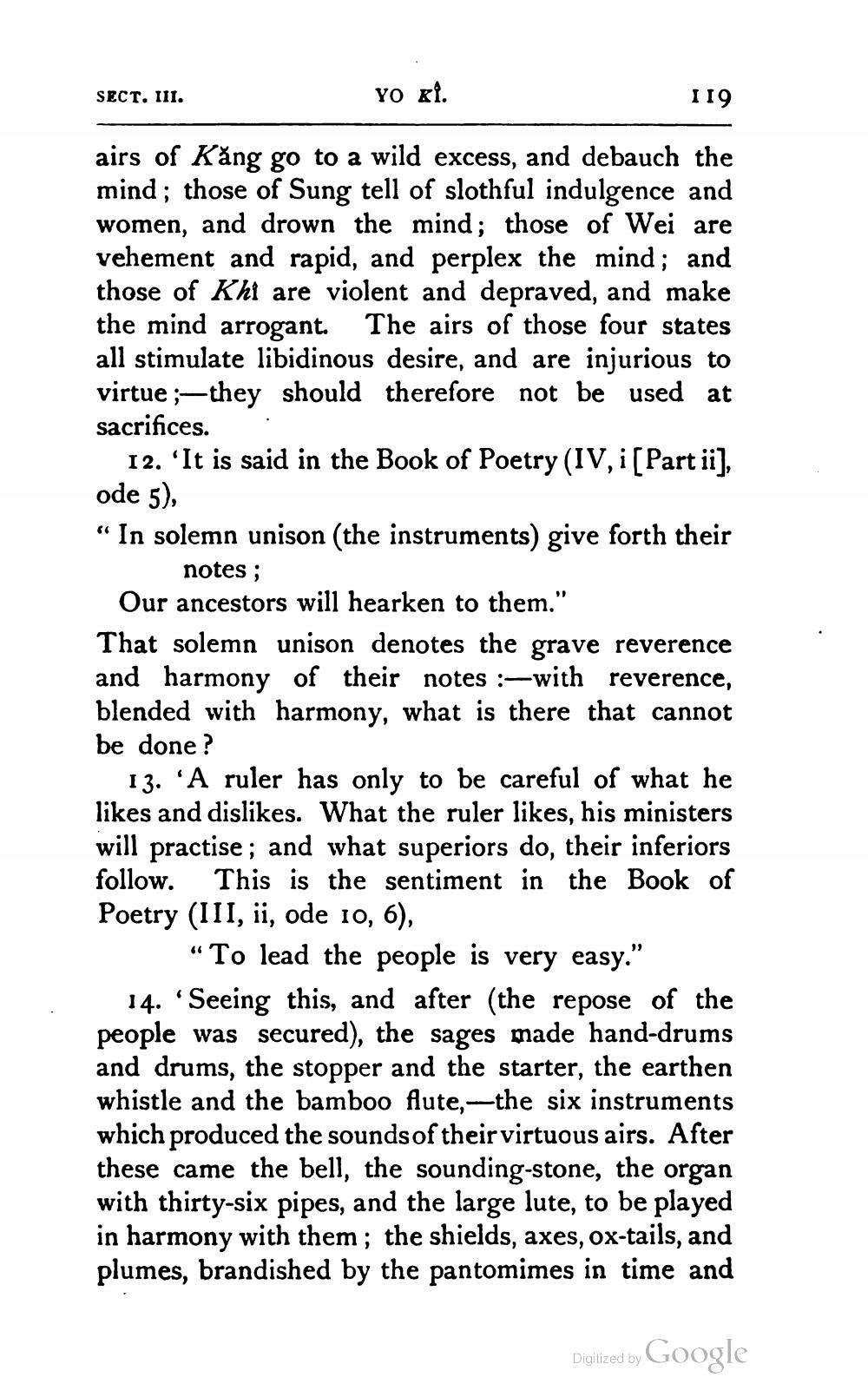________________
sect. 111.
Yo xi.
I 19
airs of Kång go to a wild excess, and debauch the mind; those of Sung tell of slothful indulgence and women, and drown the mind; those of Wei are vehement and rapid, and perplex the mind; and those of Khi are violent and depraved, and make the mind arrogant. The airs of those four states all stimulate libidinous desire, and are injurious to virtue ;—they should therefore not be used at sacrifices.
12. 'It is said in the Book of Poetry (IV, i [Part ii), ode 5), “ In solemn unison (the instruments) give forth their
notes ; Our ancestors will hearken to them." That solemn unison denotes the grave reverence and harmony of their notes :-with reverence, blended with harmony, what is there that cannot be done?
13. 'A ruler has only to be careful of what he likes and dislikes. What the ruler likes, his ministers will practise; and what superiors do, their inferiors follow. This is the sentiment in the Book of Poetry (III, ii, ode 10, 6),
“To lead the people is very easy." 14. “Seeing this, and after the repose of the people was secured), the sages made hand-drums and drums, the stopper and the starter, the earthen whistle and the bamboo flute,—the six instruments which produced the sounds of their virtuous airs. After these came the bell, the sounding-stone, the organ with thirty-six pipes, and the large lute, to be played in harmony with them; the shields, axes, ox-tails, and plumes, brandished by the pantomimes in time and
Digitized by Google




